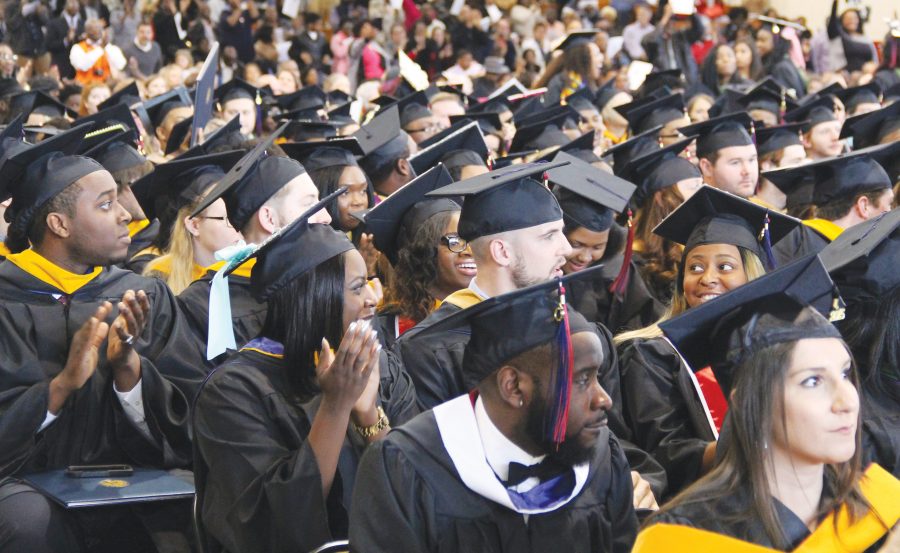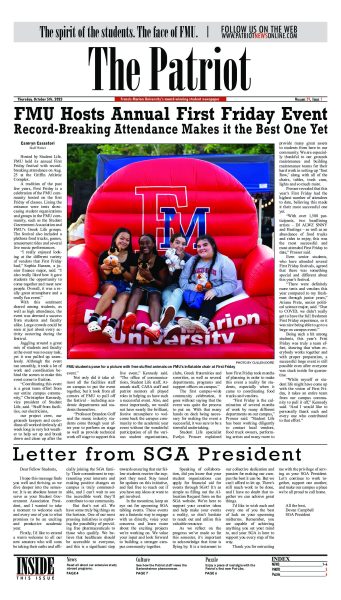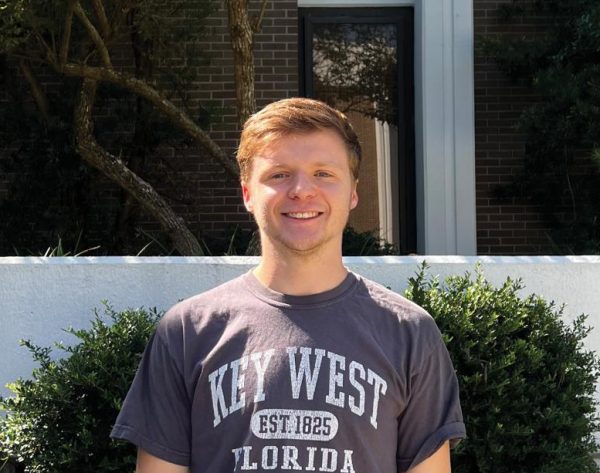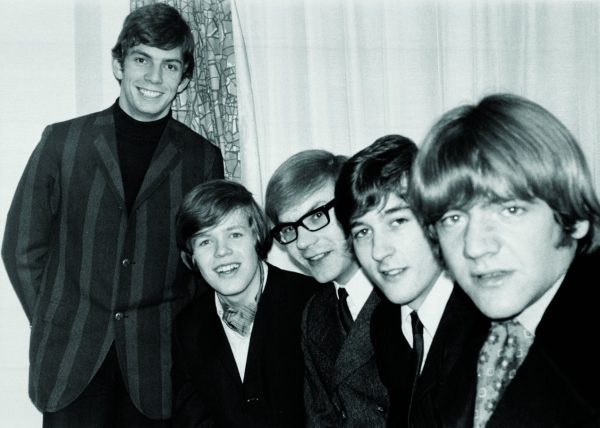FMU recognized for graduation rates: Percentage of African American grads acknowledged
Photo by: Christina Xan
Students celebrate their achievements as they prepare to become alumni during FMU’s fall commencement ceremony in December 2016.
The Education Trust, a nonprofit organization that seeks to identify and address education problems, recognized FMU as a top-performing institution for graduating African American students.
FMU’s graduation rate for African American students is 43.2 percent, only a slight percentage difference from the graduation of white students.
FMU’s president, Dr. Fred Carter, said that the recognition largely reflects the work of the faculty.
“It speaks well of the fine job the faculty do, not only with instruction but especially with advisement,” Carter said. “Being able to achieve a substantial increase in graduation rates reflects a faculty who work very hard at establishing rigorous standards, then helping their students achieve those standards.”
Associate Dean and Associate Professor of Education Tracy Meetze- Holcombe also said that quality advising is important to the success of college students, especially first-generation college students.
While not all African American students at FMU are first-generation, FMU recognizes that many of its students, regardless of ethnicity, are first-generation students.
“For someone who has a family member who has been to college, they can be given advice on things,” Meetze-Holcombe said. “However, those who are first-generation have to rely on mentors. That is one reason advising is so critical. It allows students the time to develop a relationship with a faculty member who can help.”
Since FMU has a 15:1 student: faculty ratio, Carter said these relationships tend to happen naturally.
Notably, the area surrounding FMU reflects a greater mixture of African Americans and whites than other areas of S.C. or across the nation, and FMU Executive Director of Public Affairs Tucker Mitchell said that FMU strives to serve the surrounding community.
As a result, almost half of the freshman class at FMU is comprised of African American students.
“One of the big statistic pictures that I find interesting is the almost 50/50 racial split,” Mitchell said. “There are hardly any colleges like that. It’s a good thing, and it’s reflective of the region in which we operate.”
While it would make sense that the higher enrollment rates of African American students would contribute to the higher graduation rates of African American students, this is not necessarily the case.
Delta State University is similar in many ways to FMU. Both schools have similar enrollment rates of African American students, similar student body size and a freshman class with similar levels of college-preparatory skills. However, FMU still outperforms the Mississippi school in graduation rates of African American students by 16.3 percentage points.
In The Education Trust’s recent report, “A Look at Black Student Success,” the organization said that nationally, African American students have the lowest graduation rate among all racial and ethnic groups.
They identified factors to this statistic such as on-campus racism and lack of college-preparatory skills gained in high school.
However, FMU strives to combat these possible disturbances to student success.
Carter said that resources like the Writing Center, Tutoring Center and math labs give students who may be lacking college-preparatory skills the tools to succeed in college. He said that these resources are especially important during a student’s freshman year.
Carter said that the Ready to Experience Applied Learning (REAL) Program benefits students’ college experience by helping them understand what they want to do after college.
Carter said the REAL Program contributes to closing graduation gaps.
Meetze-Holcombe and Carter said that relationships with faculty are key to students’ success.
Meetze-Holcombe said that because FMU has a high number of first-generation college students, many faculty members understand issues surrounding these students’ circumstances and are passionate about working with them.
Meetze-Holcombe was a first-generation college student and uses her background to connect with her students.
“Being a first-generation college student influences everything I do as a faculty member,” Meetze-Holcombe said. “I am able to connect with students in terms of how to navigate the university experience.”
Senior mass communication major Diamond Hunter is a first-generation college student who plans to pursue a career in broadcasting. She said her relationships with professors have positively impacted her college experience. For example, a professor in her department helped Hunter get an internship at WMBF News in Myrtle Beach.
“The professors at FMU really care about their students,” Hunter said. “I haven’t met a faculty member who hasn’t been helpful to me or my friends.”
Also, another possible factor in FMU’s success at closing the graduation gap is the nearly equal mixture of African American and white students. This racial mixture, along with various other ethnicities, gives the campus an inclusive culture.
“It’s a type of university that all people feel comfortable enrolling in and attending,” Carter said. “The culture here is accommodating irrespective of race, gender, age or national origin. If there’s anything a university should be, it should be a place where anyone feels comfortable to pursue education.”
However, Carter said that while recognition is good, FMU wants to continue to grow in its graduation and retention rates.
With the creation of the Center for Academic Success and Advisement (CASA), Carter said this goal can be met more quickly and definitively.
CASA houses multiple resources like the Tutoring Center and Career Development in one location, Founder’s Hall 220.
Mitchell said that recognition from The Education Trust is not an award, but it does reflect the university’s goal to serve the surrounding community by providing a quality education to all students.





